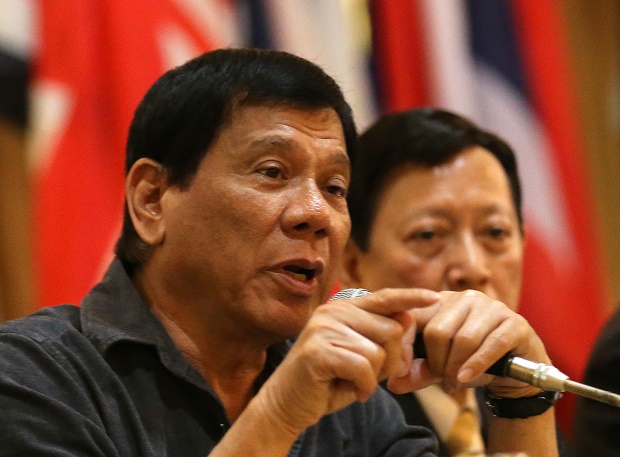An environmental group on Tuesday said that while President Rodrigo Duterte is right in saying that big polluter countries should have greater responsibility in addressing climate change, the Philippines should also help in reducing carbon emissions.
“While we welcome President Rodrigo Duterte’s demand for greater responsibility from top polluter countries to cut their carbon emissions, we believe our country’s aspirations for national industrialization can do with the general prescription of the Paris Climate Agreement to reduce our fossil fuel consumption,” Kalikasan People’s Network for the Environment (Kalikasan PNE) said in a statement.
Duterte on Monday evening said he would not honor the historic Paris Agreement, which was adopted last year by around 200 countries, including the Philippines. He said it would limit the country’s growth and that he did not sign the agreement, which was adopted during former President Benigno Aquino III’s administration.
READ: Duterte says ‘No’ to historic climate change pact | Duterte: UN stand vs coal ‘hypocritical’
Kalikasan said the President was correct in pointing out that advanced capitalist nations like the United States, European Union, Japan, and China had yet to make “much-needed deep and drastic carbon emission cuts.” The said nations are said to be the biggest contributors to global warming, which has caused changes in the environment and the climate.
“Such leniency by the Paris Agreement for polluter countries is unjustly non-commensurate to its impositions on low-carbon but climate-vulnerable countries like the Philippines,” the group said, adding that the country’s situation has made it difficult for Filipinos to cope with the impact of climate change.
Fossil fuel dependency
“In our pursuit of national industrialization, we hope Pres. Duterte notes that the further aggressive expansionism of coal-fired power plants, among the biggest sources of carbon emissions in the country, will actually be counter-productive,” it said. “Coal power pollution will inflict massive environmental and health costs upon its surrounding communities.”
Kalikasan said coal-fired power plants not only cause pollution and health hazards but also “perpetuate our dependency on imported dirty fossil fuel and technology.”
“Our renewable and indigenous energy resources such as hydro, geothermal, solar and natural gas are more than enough to provide our energy needs now and in the future,” the group said.
Not cheap
Kalikasan claimed that while coal power is cheap and has increased in installed generation capacity by 348 percent from 1997 to 2012, it has also resulted in an 88-percent increase in electricity rates during the same period.
“It is the privatization of our energy industry and its control over pricing that result in expensive electricity that is prohibitive to industrialization, not the choice of energy source,” it said.
The group urged the Duterte administration to abide by the “principle of common but differentiated responsibilities and respective capabilities” for the upcoming 22nd Conference of Parties (COP22). It was during the COP21 in Paris last year that the Philippines took the lead in representing other climate-vulnerable countries.
“A critical step that Duterte must pursue towards a pro-people, pro-environment energy policy is the reversal of energy privatization, encapsuled in the Electric Power Industry Reform Act,” Kalikasan said. “Lastly, our assertion will be on stronger ground if Duterte can demonstrate leadership by example through a moratorium on new coal-fired power plants.”/rga
